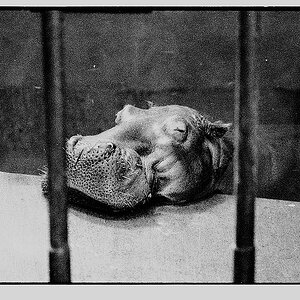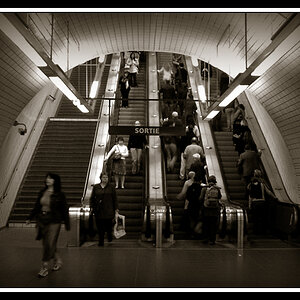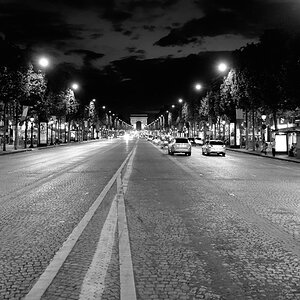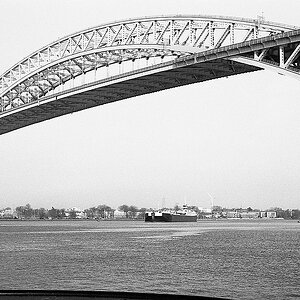Village Idiot
No longer a newbie, moving up!
- Joined
- Mar 20, 2008
- Messages
- 7,269
- Reaction score
- 406
- Location
- Shepherdsturd, WV / Almost, MD
- Can others edit my Photos
- Photos NOT OK to edit
Sometimes more is not always more. I call it spec creep. Little things they can do for next to nothing that will do a lot more for propping up sales than they ever will for truly making better photos.
More accurate AF can also mean it takes longer to think. Lower noise can also mean less detail from more NR trickery. I think you'd be hard pressed to see the difference between 14-bit and 12-bit RAW, and now you have a larger file to deal with. My D80 has a much larger viewfinder than my D40 does (0.80x vs 0.94x) and I never notice. So I doubt I'd notice the 0.80x to 0.87x difference between the XTi and XSi. They're all tiny and dim compared to what you used to get on film cameras. And I never use spot metering. :greenpbl:
Save your money and get a nicer lens instead is what I'd say. Zillions of features on camera bodies don't do much for me, but I like NICE glass.Speaking of which, I'd be far more interested in the 18-55 IS lens than any new feature on the camera. I like walking around cities I'm visiting at night or in the early AM catching the good light. I currently use a pro 17-55 f/2.8 which is big and heavy. I've been meaning to order a Nikon 18-55 VR. If that can make up for its lack of speed with the VR and gives me results that are as good, I can save myself the trouble of carrying my heavier lenses around with me.
Lower noise is from the Digic III processor, the upgrade from the Digic II in the XTI and 30D units and not from NR trickery. There have been comparisons between the 5d and the 40d...a lot of them...and you can notice richer colors from the 14bit processor in the 40d. More accurate AF could mean that the processors are now faster and can think a lot faster. The view finder is getting larger and that's what matters. I can tell the difference between my 300d and my 30d. Spot metering is the only metering I use and is something a lot of the rebel owners that knew what spot metering is were complaining about.
Camera bodies do matter up to a certain point. If they didn't, the pros would all be using entry level cameras and there would be no point in D3's and 1D's.




 I'm not knocking the XSi. I'm sure it's a great camera, but there's nothing here that makes this a quantum leap "must have" upgrade over the XTi IMHO.
I'm not knocking the XSi. I'm sure it's a great camera, but there's nothing here that makes this a quantum leap "must have" upgrade over the XTi IMHO. But that's the kind of stuff I go for, the things that will make large and very noticeable improvements. I recognize the "BS little stuff" for what it is, although if there's one very specific feature that you truly need that they add, like spot metering, well then guess what? They've got you. :mrgreen:
But that's the kind of stuff I go for, the things that will make large and very noticeable improvements. I recognize the "BS little stuff" for what it is, although if there's one very specific feature that you truly need that they add, like spot metering, well then guess what? They've got you. :mrgreen:

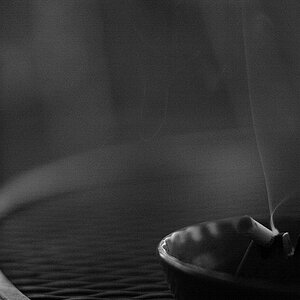
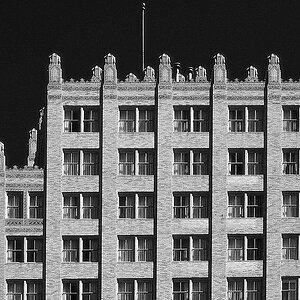
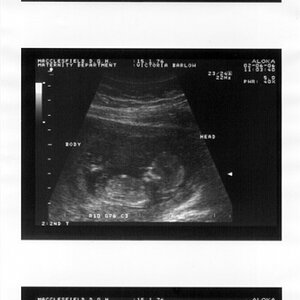
![[No title]](/data/xfmg/thumbnail/33/33024-f9a0cb6482030fec791845de1a21c82a.jpg?1619735837)
